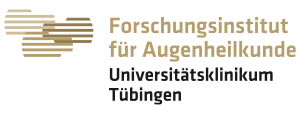Trauzettel-Klosinski Lab
Vision Rehabilitation Research Unit
Home » Labs » Clinical Research Labs » Trauzettel-Klosinski Lab » Scientific Results » Developmental…
Developmental dyslexia
It is known that children with developmental dyslexia are highly impaired for reading alphabetic script. We performed several eye movement studies to assess their reading pattern, which is characterized by a marked increase of forward and backward saccades. We found in previous studies that they had no problems for naming pictograms (confrontational naming, not rapid automatized naming), which showed that a primary oculomotor problem can not be cause of the disease. We also showed that the eye movement parameters became worse with increasing phonological difficulty of the words, which confirmed the phonological deficit hypothesis.
Main publications regarding this topic
(see also complete list)
- Trauzettel-Klosinski S, Reinhard J, Mackeben M, Dürrwächter U, Klosinski G (2000) Preliminary report: Fixation behavior and reading strategies in dyslexic and normally reading children as assessed by the scanning laser ophthalmoscope. Strabismus 8: 123-125 https://www.tandfonline.com/doi/abs/10.1076/0927-3972%28200006%29821-2FT123
- Trauzettel-Klosinski S, Mackeben M, Reinhard J, Feucht A, Dürrwächter U, Klosinski G (2002). Pictogram naming in dyslexic and normally reading children assessed by SLO. Vision Research 42: 789-799 https://www.sciencedirect.com/journal/vision-research
- Mackeben M, Trauzettel-Klosinski S, Reinhard J, Dürrwächter U, Adler M, Klosinski G. (2004) Eye movement control during single-word reading in dyslexics. Journal of Vision 4: 388-402
https://jov.arvojournals.org/article.aspx?articleid=2121827 - Trauzettel-Klosinski S, Dürrwächter U, Klosinski G, Braun C (2006) Cortical activation during word reading and picture naming in dyslexic and non-reading-impaired children. Clinical Neurophysiol 117: 1085-1097 https://www.sciencedirect.com/science/article/pii/S1388245706000393?via%3Dihub
- Trauzettel-Klosinski S, Koitzsch M, Dürrwächter U, Sokolov AN, Reinhard J, Klosinski G. (2010) Eye movements in German-speaking children with and without dyslexia when reading aloud. Acta Ophthalmol 88: 681-691 https://onlinelibrary.wiley.com/doi/pdf/10.1111/j.1755-3768.2009.01523.x

